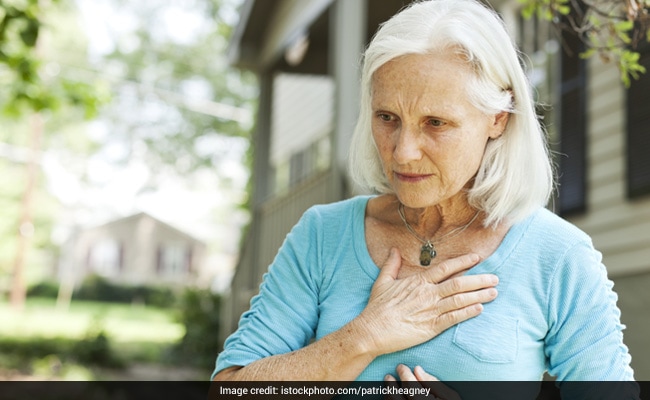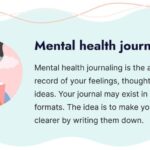Here’s How Your Lifestyle Choices Can Affect Ageing

You know those people, the ones who are older than you but act decades younger? They embody the phrase “70 is the new 50.” Actually, in their cases, 70 seems to be the new 30 because they radiate so much youth and energy. These folks may have A+ genetics, which undeniably contributes to their health, but eating nutritious foods, managing stress and making smart lifestyle choices have also been proven to slow the aging process and stave off disease. Graceful aging isn’t about avoiding wrinkles and gray hair; the ultimate goal is to maintain brain alertness, preserve energy levels and prevent disease.
The brain remains alert when it is elastic and rested; energy levels stay high when we balance blood sugar and hormones and maintain muscle mass; and we prevent disease when we preserve gut and immune health. Let’s dig into how to make these things happen so we all feel we are “the new 30.”
In her book “Younger,” Sara Gottfried, a gynecologist and women’s health specialist, explains that brain “neurons lose speed and flexibility as they age.” Stress and free radicals from our environment damage brain cells, so we need to give our brain the food, and sleep, it needs to repair.
Omega-3 fatty acids may be the brain’s most beneficial food. These fats have been shown to support brain function, reduce inflammation, build and repair cell membranes, and aid with stress management, while also protecting against cardiovascular issues and diabetes. Don’t skimp on omega-3s found in wild salmon, sardines, mackerel and fish oil supplements.
Water is essential whether young or old. Every one of our cells requires water to survive and replicate. Dehydration can cause fatigue, foggy thinking, headaches and constipation, all signs of aging. (Or perhaps simply signs of dehydration?) A hydrated brain is a healthier brain, and as we get older it becomes more difficult to absorb nutrients in the gut, and a hydrated gut is a healthier gut, too.
B vitamins have been shown to improve cognitive function. Delara Tavikoli, an age management specialist in Chevy Chase, Maryland, explains that stomach acidity declines with age, therefore B vitamins are often poorly absorbed. In addition, many medications such as acid-blocking drugs for heartburn can block a body’s ability to absorb B vitamins, as can stress. Eat plenty of B vitamins from foods such as eggs, beans, nuts, seeds, green vegetables, fish and whole grains.
Gottfried explains that by age 50, the average adult has lost 15 percent of lean body mass, and the loss continues with advanced age. The lower the muscle mass, the higher the fat mass, which can fuel other chronic conditions such as diabetes and heart disease. A significant loss of muscle also increases the probability of a fall. Adequate protein throughout the day – from beans, nuts, seeds, wild fish, chicken and avocado – is key as the body ages. Weight-bearing exercise and yoga support muscle strength and flexibility.
Tavikoli explains that approximately 70 percent of the immune system lies beneath the gut lining, so it is important to keep the gut healthy to empower the immune system to fight disease. She advises patients to consume bone broth as it is one of the most easily absorbable and nourishing foods, full of collagen, protein and minerals. She also suggests fermented foods for gut and immune health.
Vitamin E, found in nuts and seeds, is a beneficial antioxidant that supports immune function, as is vitamin C, found in citrus, berries, leafy greens and tomatoes. Other antioxidants that boost the immune system are found in colorful fruits and vegetables.
Tavikoli explains that as we age we are more at risk for vitamin D deficiency because we may spend less time in the sun and also have less capacity to synthesize vitamin D through the skin. Vitamin D boosts the immune system, prevents cancer and supports bone and heart health. It also helps to absorb other nutrients such as calcium, iron, magnesium and zinc. Studies show that only 10 to 15 percent of the calcium in food is absorbed without vitamin D.
In her book, Gottfried describes how imbalanced blood sugar causes dips in energy and mood, cravings for sugar and carbohydrates, interrupted sleep and speedier aging. Imbalanced blood sugar is also a precursor to diabetes, which is linked to many other diseases. Avoid processed foods and sugars and wait a few hours between meals to allow blood sugar to balance. Fiber, found in fruits and vegetables, also helps to balance blood sugar.
Healthy fats build healthy hormones, while too much sugar, too little sleep and many of the chemicals in our environment contribute to imbalanced hormones, which contribute to the aging process. Tavikoli affirms that eating healthy fats such as salmon and avocados helps with hormone health. She also explains that negative thoughts and attitudes release stress hormones, which undermine hormone and neurotransmitter health, while positive thoughts boost happy hormones and positive health. The placebo effect is one example of how the power of hopeful, positive thoughts can have a positive medical impact.
Without question, I want loads of happy hormones flooding my body, who doesn’t? I also want a sharp brain, an active body, and to elude disease. Do I have A+ genes? I’ll never know. Placebo effect, who cares? I’m counting on the salmon and a dose of optimism.
[“source=doctor.ndtv”]




